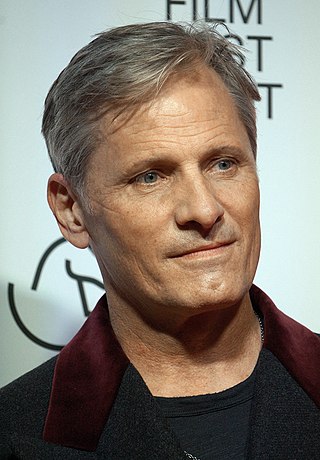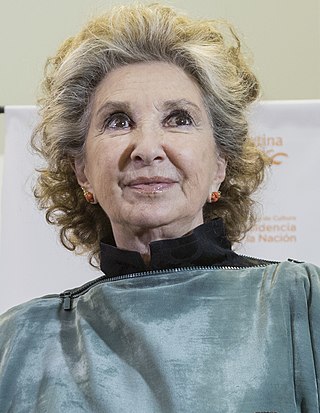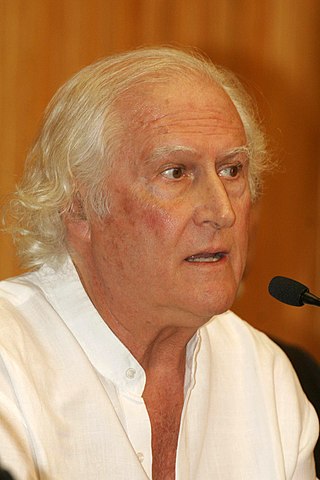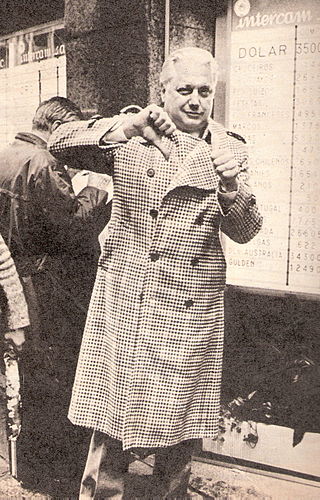Contents
This article needs additional citations for verification .(May 2019) |
This article needs additional citations for verification .(May 2019) |

Viggo Peter Mortensen Jr. is an American actor, musician, and filmmaker. He is the recipient of various accolades, including nominations for three Academy Awards for Best Actor, three BAFTA Awards, four Golden Globe Awards, and an Independent Spirit Award.

Tango is a partner dance and social dance that originated in the 1880s along the Río de la Plata, the natural border between Argentina and Uruguay. The tango was born in the impoverished port areas of these countries from a combination of Argentine Milonga, Spanish-Cuban Habanera, and Uruguayan Candombe celebrations. It was frequently practiced in the brothels and bars of ports, where business owners employed bands to entertain their patrons. It then spread to the rest of the world. Many variations of this dance currently exist around the world.

The Motorcycle Diaries is a 2004 biographical film about the journey and written memoir of the 23-year-old Ernesto "Che" Guevara, who would several years later become internationally known as the Marxist guerrilla leader and revolutionary leader Che Guevara. The film recounts the 1952 expedition, initially by motorcycle, across South America by Guevara and his friend Alberto Granado. As well as being a road movie, the film is a coming-of-age film; as the adventure, initially centered on youthful hedonism, unfolds, Guevara discovers himself transformed by his observations on the life of the impoverished indigenous peasantry. Through the characters they encounter on their continental trek, Guevara and Granado witness first hand the injustices that the destitute face and are exposed to people and social classes they would have never encountered otherwise. To their surprise, the road presents to them both a genuine and captivating picture of Latin American identity. As a result, the trip also plants the initial seed of radicalization within Guevara, who would later challenge the continent's endemic economic inequalities and political repression.

Lost Embrace is a 2004 internationally co-produced comedy-drama film, directed by Daniel Burman and written by Burman and Marcelo Birmajer. The film features Daniel Hendler, Adriana Aizemberg, Jorge D'Elía, among others.

A sexploitation film is a class of independently produced, low-budget feature film that is generally associated with the 1960s and early 1970s, and that serves largely as a vehicle for the exhibition of non-explicit sexual situations and gratuitous nudity. The genre is a subgenre of exploitation films. The term "sexploitation" has been used since the 1940s.

Norma Aleandro is an Argentine actress. She is considered one of the most celebrated and prolific Argentine actresses of all time and is recognized as a cultural icon in her home country.

Roma is a 2004 Argentine-Spanish drama film directed by Adolfo Aristarain and starring Juan Diego Botto, Susú Pecoraro and José Sacristán.

Luisana Loreley Lopilato de la Torre is an Argentine actress, model and former singer. She was a member of the pop-rock band Erreway from 2002 to 2004.

Gustavo Alfredo Santaolalla is an Argentine composer and musician. Known for his minimalist approach to composing, he rose to fame for creating the scores for Brokeback Mountain (2005) and Babel (2006), for which he received two Academy Awards for Best Original Score in consecutive years. Santaolalla also gained recognition for his work on The Last of Us games, composing the original title and its 2020 sequel. He returned to reprise his themes and co-compose the score for the 2023 HBO adaptation.

Fernando Ezequiel "Pino" Solanas was an Argentine film director, screenwriter, score composer and politician. His films include; La hora de los hornos (1968), Tangos: el exilio de Gardel (1985), Sur (1988), El viaje (1992), La nube (1998) and Memoria del saqueo (2004), among many others. He was National Senator representing the Autonomous City of Buenos Aires for six years, from 2013 to 2019.

Cinema of Argentina refers to the film industry based in Argentina. The Argentine cinema comprises the art of film and creative movies made within the nation of Argentina or by Argentine filmmakers abroad.

Ricardo Alberto Darín is an Argentine actor, film director and film producer, considered one of the best and most prolific actors of Argentine cinema.
The Mar del Plata International Film Festival is an international film festival that takes place every November in the city of Mar del Plata, Argentina. It is the only competitive feature festival recognized by the FIAPF in Latin America, and the oldest in this category in the Americas. The festival is organized by the National Institute of Cinema and Audiovisual Arts (INCAA).
Latin American cinema refers collectively to the film output and film industries of Latin America. Latin American film is both rich and diverse, but the main centers of production have been Argentina, Brazil and Mexico. Latin American cinema flourished after the introduction of sound, which added a linguistic barrier to the export of Hollywood film south of the border.
Patagonik Film Group is an Argentine production company, dedicated to the making of feature films and film production services. A part of the Clarín Group, Patagonik Film Group also assists in the production of international films that want to film in Argentina.
This is an index to pages listing Argentine films ordered by year of release. For an A-Z list, see Category:Argentine films.

Héctor Olivera is an Argentine film director, producer and screenwriter. Olivera worked mainly in the cinema of Argentina, but also has directed or contributed to several films made for the United States market.

Historias mínimas is a 2002 Argentine drama film directed by Carlos Sorín and written by Pablo Solarz. The film was produced by Martin Bardi, Leticia Cristi, and José María Morales. It features, among others, Javier Lombardo, Antonio Benedicti and Javiera Bravo.

The Guadalajara International Film Festival is a week-long film festival held each March in the Mexican city of Guadalajara since 1986.

Argentina, officially the Argentine Republic, is a country in the southern half of South America. Argentina covers an area of 2,780,400 km2 (1,073,500 sq mi), making it the second-largest country in South America after Brazil, the fourth-largest country in the Americas, and the eighth-largest country in the world. It shares the bulk of the Southern Cone with Chile to the west, and is also bordered by Bolivia and Paraguay to the north, Brazil to the northeast, Uruguay and the South Atlantic Ocean to the east, and the Drake Passage to the south. Argentina is a federal state subdivided into twenty-three provinces, and one autonomous city, which is the federal capital and largest city of the nation, Buenos Aires. The provinces and the capital have their own constitutions, but exist under a federal system. Argentina claims sovereignty over the Falkland Islands, South Georgia and the South Sandwich Islands, the Southern Patagonian Ice Field, and a part of Antarctica.